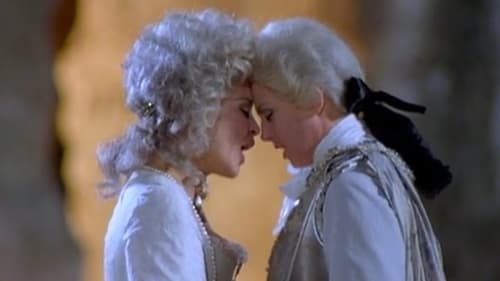
self

Titurel
Iván Fischer makes his DNO debut. He conducts the Royal Concertgebouw Orchestra. Pierre Audi, artistic director of DNO and the Holland Festival, directs his first new DNO production since Saint François d'Assise (2008). For Parsifal Audi once again joins forces with the British sculptor Anish Kapoor (décor). Alejandro Marco-Buhrmester previously sang the role of Amfortas at the Opéra National de Paris and the Bayreuther Festspiele. Kurt Rydl (Titurel/Klingsor) made previous DNO appearances as Hagen/Hunding in Der Ring des Nibelungen and as Heinrich in Lohengrin. Kurt Rydl has been an honorary member of the Wiener Staatsoper since 1999. Falk Struckmann has frequently sung the role of Amfortas, but now makes his first DNO appearance in his role debut as Gurnemanz. The title role is sung by Christopher Ventris, who previously appeared at DNO as Steuermann in Der fliegende Holländer. Petra Lang (Kundry) previously sang Brangäne in Tristan und Isolde and Venus in Tannhäuser at DNO.

Opera as never experienced before: a world-class cast, stylish haute couture outfits, the spectacular setting of Hangar-7 with more than 10 different locations and state-of-the-art technology. All of this cut together as a live opera film: a modern and unique production of Mozart's Die Entführung aus dem Serail one of the highlights of the Salzburg Festival 2013. In Adrian Marthaler's production, the whole Hangar-7 at Salzburg Airport becomes the backdrop for an extraordinary opera performance. The distinguished Camerata Salzburg is conducted by Hans Graf, one of the best Mozart connoisseurs. The star soloists including Desirée Rancatore (Konstanze), Javier Camarena (Belmonte), Kurt Rydl (Osmin) as well as famed Austrian actor Tobias Moretti as Bassa Selim guarantee a special treat. Even audiences that are not yet opera aficionados are set to be enthused by this novel approach.

La Roche
Richard Strauss' last stage work is an opera about opera as an art form, depicting the creation of a music drama in a wise and witty way. Which came first the words or the music? That is the question Strauss and his librettist Clemens Krauss address through the story of a Countess torn between a composer and a poet.

Baron Ochs
The Semperoper caused a sensation in November 2007 when it visited Japan for the first time in twenty-six years. The demand for tickets and the audience's enthusiasm were unprecedented, not least because the company was staging a piece that is performed more authentically in Dresden than anywhere else in the world: Richard Strauss' Der Rosenkavalier, which received its first performance in Dresden in 1911. Leading the ensemble was the radiant-voiced and profoundly thoughtful Marschallin of Anne Schwanewilms.

Osmin
Singspiel in three acts by Wolfgang Amadeus Mozart. The German libretto is by Gottlieb Stephanie, based on Christoph Friedrich Bretzner's Belmont und Constanze, oder Die Entführung aus dem Serail. The plot concerns the attempt of the hero Belmonte, assisted by his servant Pedrillo, to rescue his beloved Konstanze from the seraglio of Pasha Selim. The work premiered on 16 July 1782 at the Vienna Burgtheater, with the composer conducting.

Singer
Tony Randall and some children, filmed in Connecticut, provide the framework of the history of some of the carols sung by opera stars.

Alvise
Recorded live at the Vienna State Opera, Placido Domingo and Eva Marton star in a sumptuous recording of Ponchielli's famed four-act melodrama, a story of tyranny and intrigue set in semi-historical and ever-romantic Venice. The action is projected by strong characters whose fundamentally sound instincts become distorted by raw passion. The performance draws upon both human and technical resources including a large ballet and varies in mood from the happy carnival to scenes of the darkest gloom and horror.

Polizeikommissar
A production of Strauss' opera 'Der Rosenkavalier' performed at the Saltzburg Festival in 1984. Includes the Vienna State Opera Choir, the Philharmonic Orchestra with singers Wilma Lipp, Anna Tomowa-Sintow and Agnes Baltsa. Conducted by Herbert Von Karaja

Zweiter Geharnischter
Mozart’s “The Magic Flute”

Ramfis
tt0255782. Aida (1981) San Francisco. Verdi / Italian. An Egyptian military commander, Radamès, struggles to choose between his love for the enslaved Ethiopian princess Aida, and his loyalty to the Pharaoh. To complicate the story further, the Pharaoh's daughter Amneris is in love with Radamès, although he does not return her feelings.

Publio
"La Clemenza di Tito" was Mozart's last stage work. It was commissioned for an Imperial coronation ceremony while Mozart was at work on "Die Zauberflöte" and was composed in great haste. Indeed, time was so short that composition of the secco recitatives was assigned to Mozart's pupil Süssmayr. As in the earlier "Idomeneo", Mozart sought to produce an opera seria that was dramatically viable. He enlisted the poet Mazzolà to substantially revise the Metastasio libretto, which had already been set some fifty times. The number of arias was reduced from 25 to 11, and ensembles and choruses were added to enliven the proceedings. Though perhaps not the very top-drawer Mozart, the music is wonderful.

Em Sevilha na Espanha do séc XIX. Carmen é uma cigana que trabalha numa fábrica de cigarros. Sua beleza quente seduz os homens especialmente o soldado Don José que se torna completamente obcecado. Por esse amor, ele perde a farda e torna-se amante de Carmen até o ponto de fazer parte de um bando de contrabandistas, amigos da bela cigana. Pela liberdade de amar, Carmen acaba deixando o pobre amante para ficar com um famoso toureador. O soldado enfeitiçado então é tomado por um acesso de ira e ciúme e caba por matá-la.










